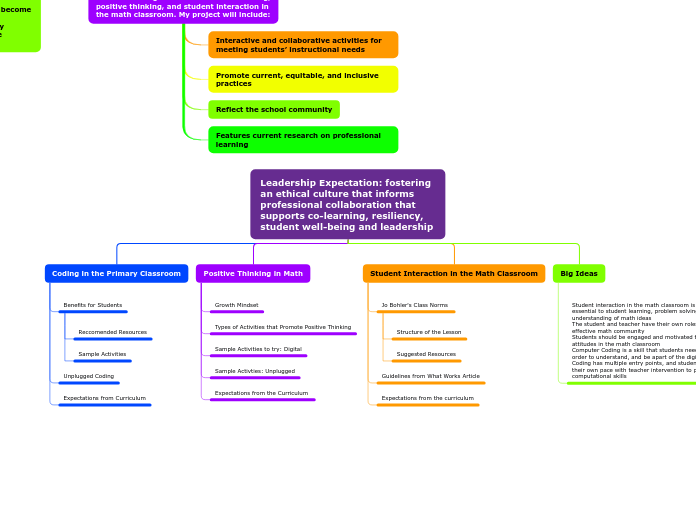Leadership Expectation: fostering an ethical culture that informs professional collaboration that supports co-learning, resiliency, student well-being and leadership
Coding in the Primary Classroom
Benefits for Students
Reccomended Resources
Sample Activities
Unplugged Coding
Expectations from Curriculum
Positive Thinking in Math
Growth Mindset
Types of Activities that Promote Positive Thinking
Sample Activities to try: Digital
Sample Activties: Unplugged
Expectations from the Curriculum
Student Interaction in the Math Classroom
Jo Bohler's Class Norms
Structure of the Lesson
Suggested Resources
Guidelines from What Works Article
Expectations from the curriculum
Big Ideas
Student interaction in the math classroom is absolutely essential to student learning, problem solving, and conceptual understanding of math ideas
The student and teacher have their own roles in creating an effective math community
Students should be engaged and motivated to sustain positive attitudes in the math classroom
Computer Coding is a skill that students needs to develop in order to understand, and be apart of the digital world.
Coding has multiple entry points, and students should work at their own pace with teacher intervention to promote the use of computational skills
